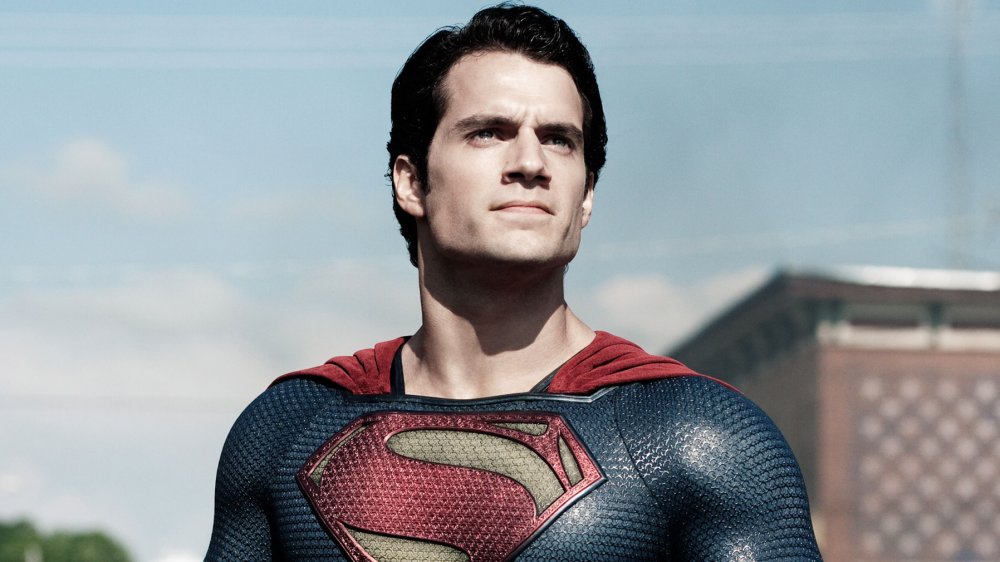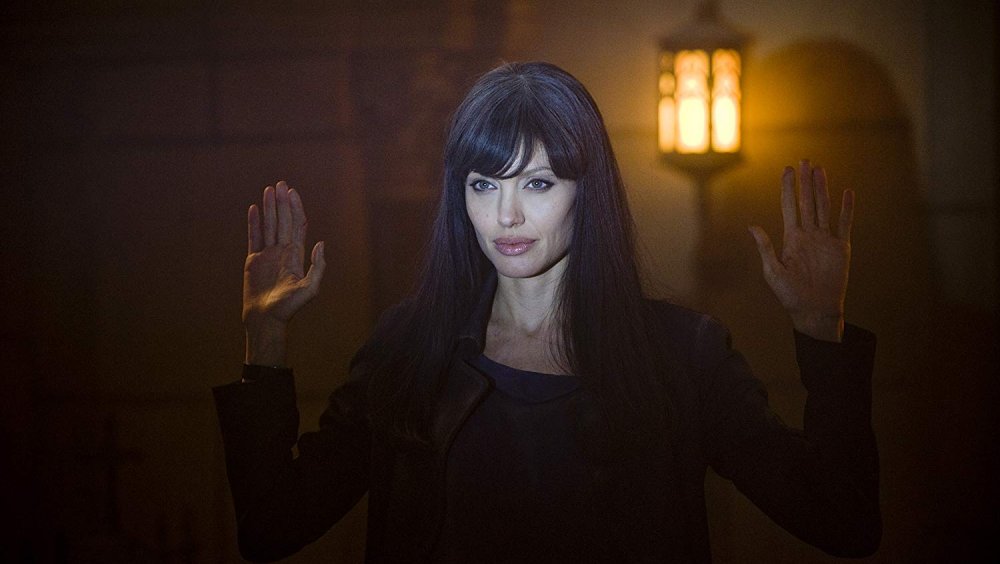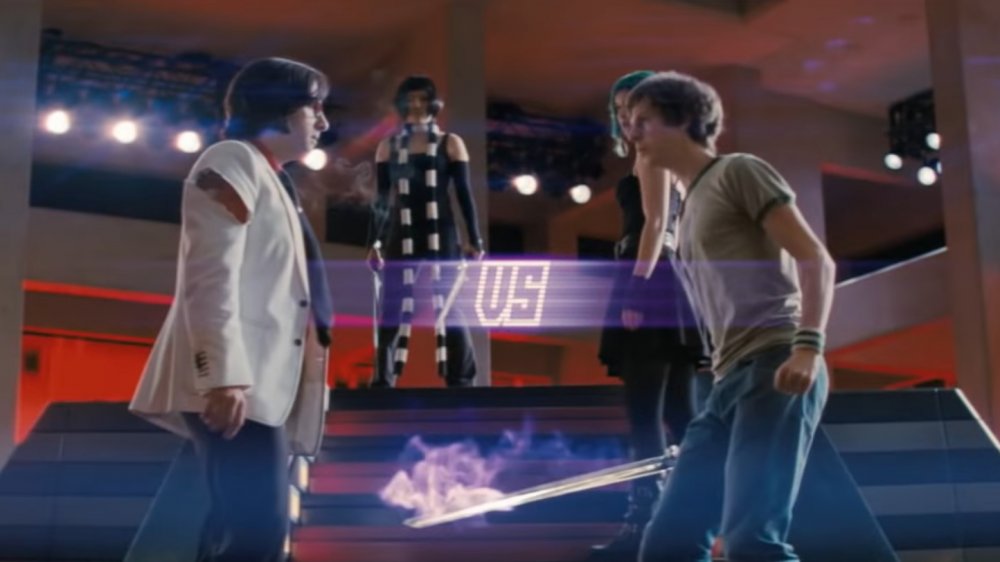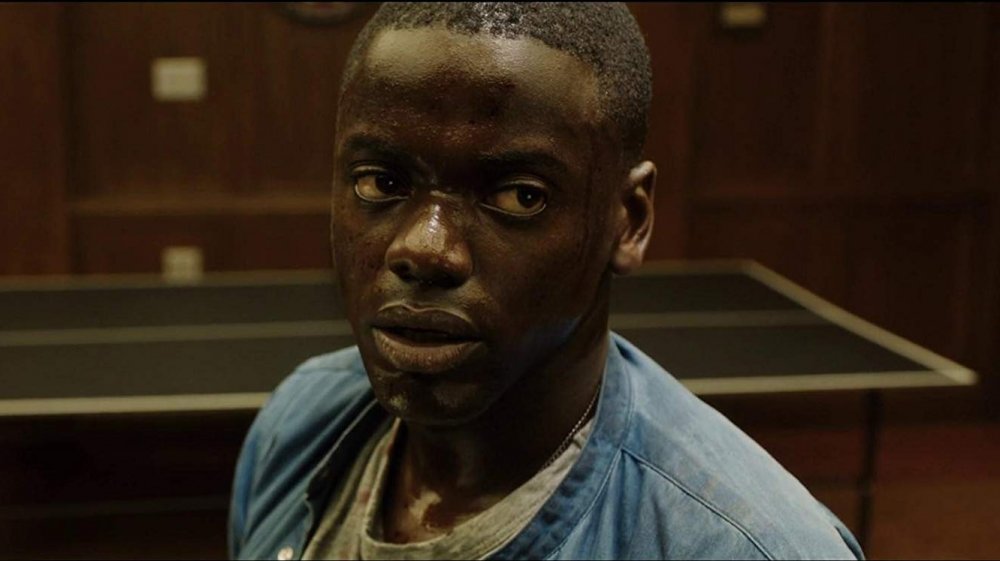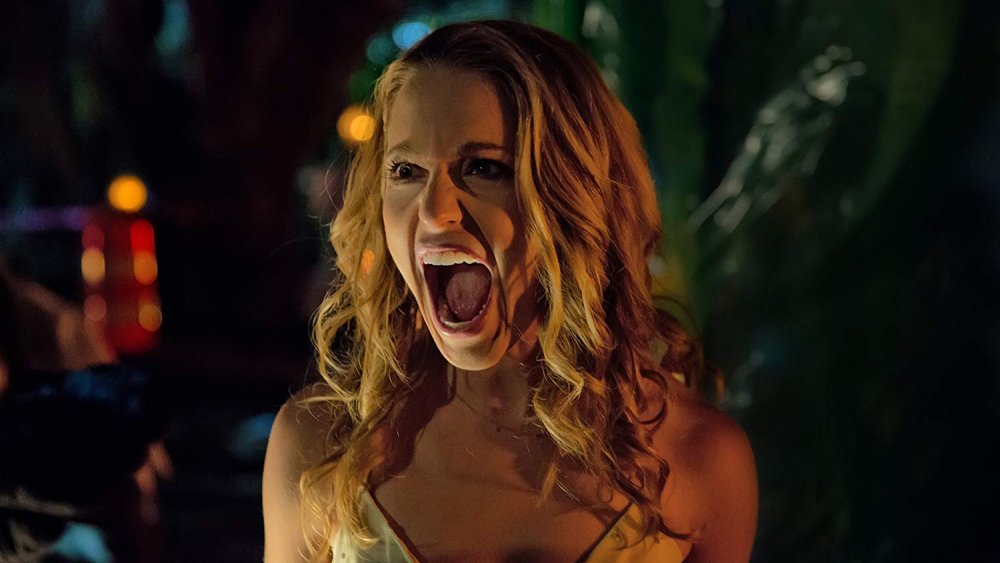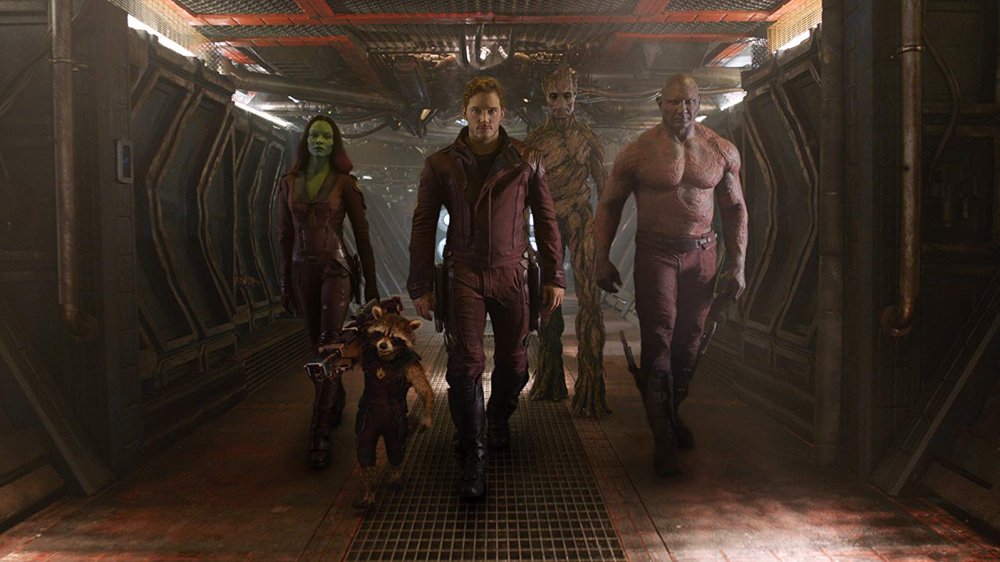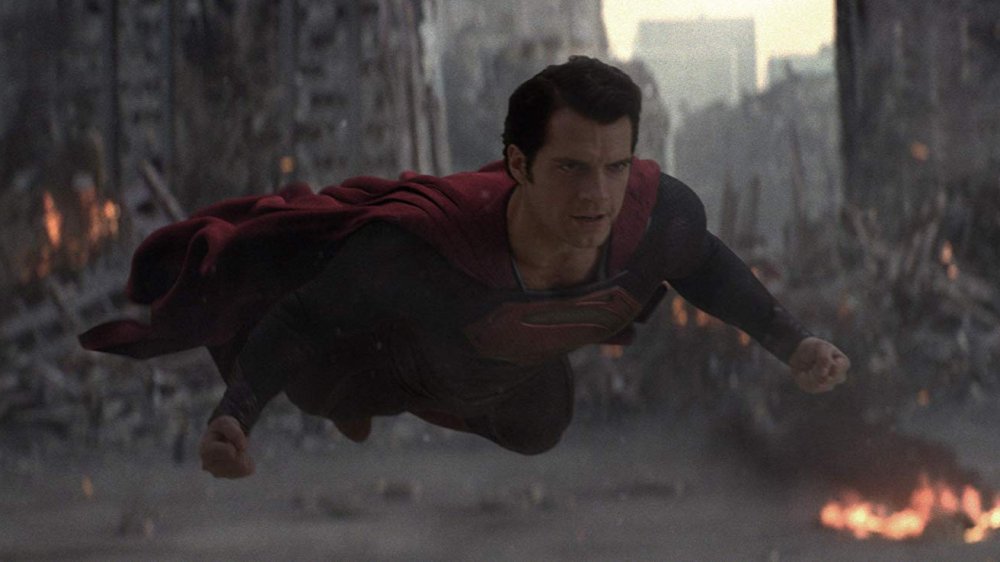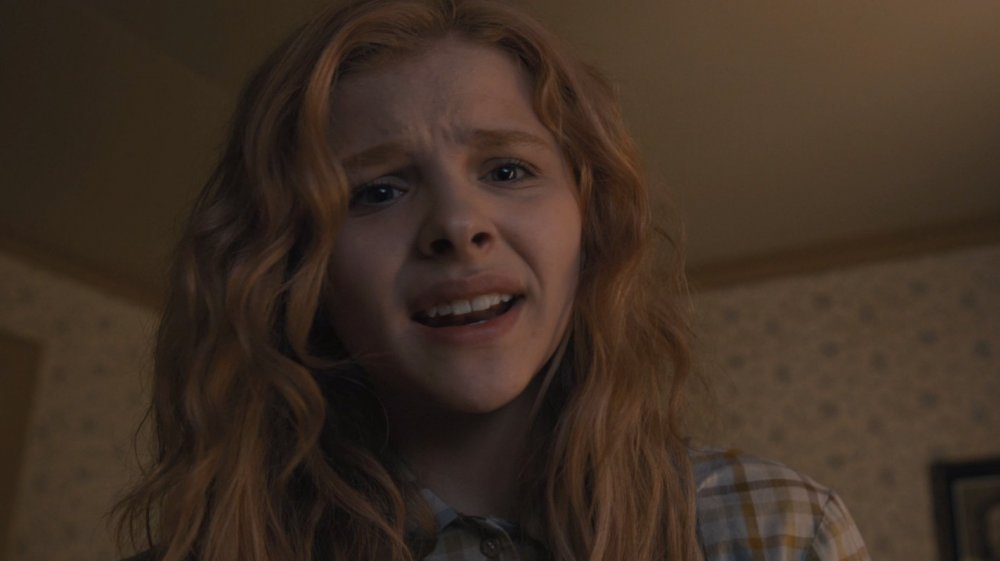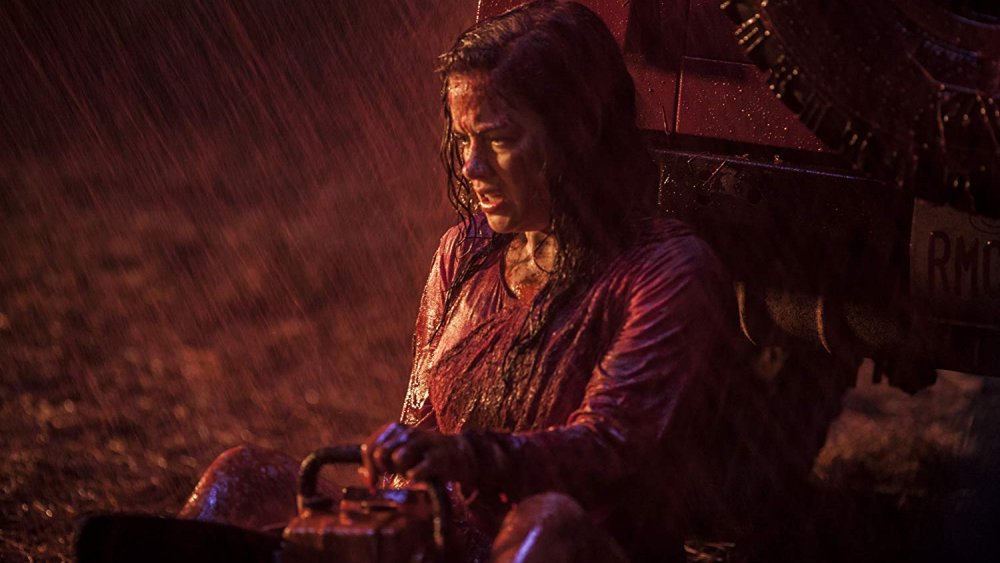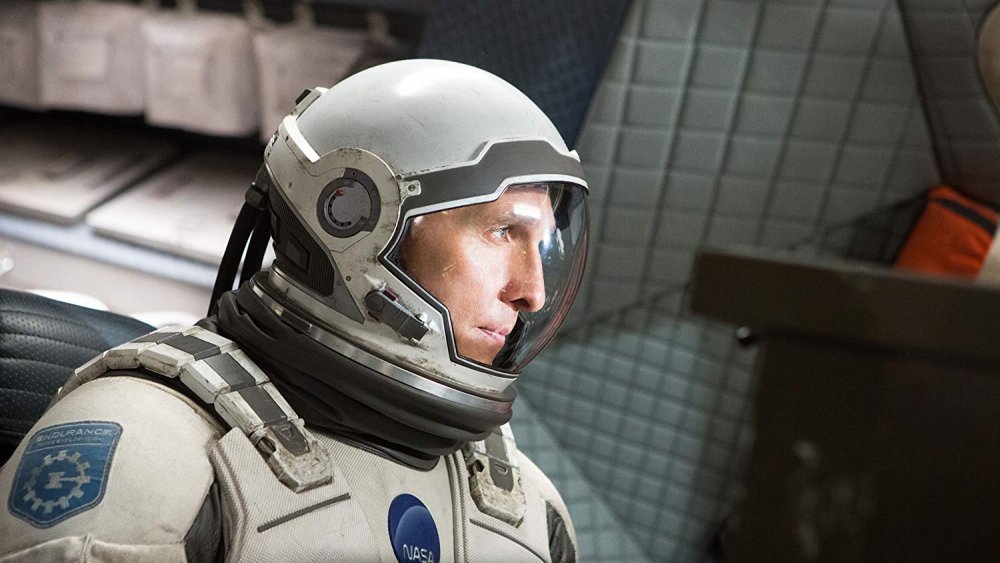The Best Alternate Movie Endings Of The Past Decade
Sometimes, no matter what a movie is working with in terms of a hook, a cast, and an overall story structure, the filmmakers just can't quite figure out the ending until the very last minute. In the age of DVD and Blu-ray special features, audiences have come to understand this more and more, and the "alternate ending" has risen up in our imaginations as an often thrilling reminder of what could've been.
The 2010s have offered us plenty of films with alternate endings, whether they existed only in the screenplay stage or made it all the way through production until they wound up in a deleted scenes reel. Some of these endings might've made their films better, others might've made them worse, but as standalone scenes, they're all intriguing looks at potential outcomes for some of the biggest movies of the 2010s. Here are our picks for the best alternate endings of the past decade.
(Be warned. There are major spoilers ahead.)
Salt's alternate ending is much more explosive
Salt is an action-packed spy drama about a woman who discovers that she's secretly a sleeper agent for the Russians despite years of working for the CIA, but an alternate version of the film's ending would've added even more layers to the already twisty tale.
In the original ending of the film, after the titular Evelyn Salt turns on the Russians she was supposed to collaborate with, the counterintelligence officer who arrested Salt is now convinced that she's on the right side. As a result, Salt is allowed to escape, and the film heavily implies that she will continue to hunt down other sleeper agents and, hopefully, make the world a safer place. This concept is perfect for setting up a sequel, though the film never got one.
In the alternate ending for the film, the sequel setup is more implicit, because we actually get to see Salt's next steps. The extended ending shows Salt disguised as a nun, infiltrating the secret Russian facility where she was trained. Salt kills the Russian spymaster, Orlov, and dumps his body, and the scene ends with the facility exploding, implying Salt's intention to rip the operation out root and stem. It's a darker ending, but one that definitely implies the next chapter of her life will be even more explosive.
Scott Pilgrim vs. the World was originally bittersweet
Edgar Wright's adaptation of Bryan Lee O'Malley's Scott Pilgrim comics is an all-out extravaganza of video game metaphors, catchy music, and over-the-top performances, all meant to evoke a metaphorical exploration of young heartbreak. One of the film's narrative goals is to create the sense that we really don't know what Scott's future holds or who he'll end up with, and it turns out that at a certain point, even the filmmakers didn't know.
In the final film, after defeating Gideon Graves, Scott bids farewell to his ex-girlfriend, Knives Chau, and ends up with Ramona Flowers, but that wasn't always the choice Wright intended to go with. In the original, alternate ending, Scott and Ramona bid a tearful goodbye to one another after the battle, and Scott walks off into the sunrise with Knives in an effort to give their relationship another try. The ending was up in the air, partly because at the time the film was made, O'Malley hadn't finished the last volume of the comic, and therefore hadn't revealed his preferred ending to the world. According to Wright, arguments at test screenings led the filmmakers to come up with the dramatically changed ending, but the Knives finale definitely has a bittersweet beauty.
Get Out's alternate ending gets way darker
Jordan Peele's Get Out was one of the most incisive and effective horror films of this decade, a movie that managed to both deliver the scary goods and subvert expectations at every turn. The film follows Chris, a young black man who goes with his white girlfriend to meet her parents and uncovers a secret society of rich white people who are stealing the bodies of young black people to use as vessels of immortality and health. In the film's climax, Chris manages to fight off the people trying to steal his body, and just when it seems he's about to be arrested for murdering his girlfriend and her family in self-defense, the film reveals that the lights and sirens approaching are actually from a car driven by his friend, Rod. Chris is free, and the film ends happily.
An alternate ending reveals that Peele once had a much more somber fate for Chris in mind. In this ending, Chris still fights off his attackers and kills his girlfriend, but the lights and sirens are revealed to be regular cops, who arrest him. Rod later visits Chris in prison and asks him to go over what happened again in the hope that they can overturn his conviction, but Chris is at peace, telling Rod simply, "I stopped it." It's a darker ending, to be sure, but it's also one full of the same social commentary that helped define the rest of the film.
Happy Death Day almost had one of the most shocking endings of the decade
Happy Death Day is one of the best horror comedies in recent memory, enjoyable for both its cast of witty characters and its ability to milk its central high-concept for all it's worth. The film follows Tree, a college student who finds herself in a time loop after she's murdered by a masked killer on the night of her birthday. In order to stop the loop and free herself, she has to figure out who the killer is and stop him or her.
In the final version of the film, the killer is revealed to be Tree's roommate, Lori, who killed her with a poisoned cupcake and used a recently hospitalized serial killer as cover for her crime. When the film was in test screenings, though, it featured a much darker version of events. In the original ending, Tree fights off and kills Lori, then ends up in the hospital to recover from her injuries. While there, a nurse creeps into Tree's room and reveals herself to be Stephanie, the wife of the professor who Tree was having an affair with at the beginning of the film. Stephanie murders Tree, and the film ends on that horrifying note of revenge. Fortunately, Tree survived in the final cut for a sequel, but this ending still would've worked for its sheer, almost infuriating shock value.
Guardians of the Galaxy's alternate ending would've made audiences cry
Some films feature alternate endings that completely change the version of events we saw on the big screen, while others shift things only slightly but with great tonal effect. Then there are the films that can add a whole new layer of meaning with a single deleted shot. That's the case with Guardians of the Galaxy, which almost featured a more bittersweet ending.
In the final film, the title team gets on their repaired ship to fly off for more adventures together while "Ain't No Mountain High Enough" plays for what's a universally happy ending, but according to writer/director James Gunn, there was originally more to the montage. The original cut of the ending also featured a short scene where Peter Quill's grandfather, who we saw in the beginning of the film, is looking up at the night sky while holding a picture of his grandson and dead daughter. The scene implies that Peter's grandfather somehow witnessed his abduction as a boy, and he's still waiting for him to come home to Earth again. Gunn said the moment felt a little too sad to stay in such a happy montage, but it would've added some emotional depth to an already emotional moment.
Man of Steel almost had Superman show some mercy
In 2012, Warner Bros. Pictures decided it was time to jump-start a shared superhero universe of its own, and that universe started with a new take on Superman. Man of Steel was enough of a success to launch what would become the DC Extended Universe, but it was also one of the most divisive superhero movies of the decade, in no small part due to its ending.
In the finished film, Superman faces off with Zod in an epic and epically destructive showdown in Metropolis, with the fate of humanity hanging in the balance. Faced with a choice between killing Zod and letting him continue to rain down destruction on innocent people, Superman shows his dark side and snaps Zod's neck. According to director Zack Snyder and writer David Goyer, this is the ending they wanted, but it wasn't the original conclusion to the fight. Earlier versions of the script featured Superman defeating Zod but sparing his life, sending the Kryptonian criminal back to the Phantom Zone to live in exile. This was apparently the ending preferred by producer Christopher Nolan, but Goyer and Snyder wanted something more impactful, and they fought for a more violent end for Zod. They got their way, but you have to wonder if the entire DCEU might've turned out a little differently if they hadn't.
Carrie was nearly the most disturbing horror movie of the decade
The 2013 remake of Stephen King's Carrie features an ending that's meant to pay homage to Brian De Palma's original film adaptation while also offering a slightly different take on things. In the final film, Sue Snell pays a visit to Carrie White's graffiti-covered grave, and the last thing we see is the gravestone shaking and cracking as we hear Carrie's scream.
The alternate ending features an even more overt and disturbing homage to De Palma's jump scare ending, as Sue again visits the grave and goes into labor while at the cemetery. She's taken to the hospital, and as she struggles to give birth, Carrie's bloody hand reaches out from between her legs in a gruesome homage to the hand reaching from beneath the ground in the De Palma version. Adding yet another twist to things, this ending features Sue waking up at the end, revealing that it was all a nightmare. It's a more twisted finale than what audiences got, but it's easy to see why it was cut in favor of something a bit simpler.
Evil Dead's alternate ending was a little more ambiguous
Director Fede Alvarez's 2013 remake of Evil Dead was billed as a nonstop onslaught of horror and gore, and it proved to live up to that marketing promise. The film is just relentless, right down to the ultraviolent ending that features both chainsaw mutilations and a rain of blood. With this in mind, the film's final ending, where Mia walks off into the woods through the rising sun, is actually somewhat hopeful even though the evil Naturom Demonto is still around to wreak more havoc.
The film's alternate ending wouldn't have made things any more definitive, but it would've added another layer of uncertain terror to the finale. That version follows Mia a little longer, and we see her walking down the road until she passes out. A truck driver stops to check on her, picks her up, and begins driving her to the hospital. In the final shot, the camera pushes in on Mia until her eyes snap open. There's no overt sense of repossession, but there is the sense that she'll probably never be okay again. It's a more ambiguous, but no less frightening, way to conclude the tale.
Interstellar almost had a much more tragic finale
Christopher Nolan's Interstellar is a visual feast that's also packed with big ideas about time, space, and human endurance. It's also one of those films that famously frustrated and baffled certain moviegoers upon release. In the final version of the film, the heroic astronaut Cooper flies into a black hole with the help of the robot TARS, and once inside, he finds himself in a kind of fifth-dimensional space where he's able to reach back through time and communicate with his daughter, Murph, sending her data that will ultimately pave the way for humanity's future survival on space stations. Interstellar's ending is twisty and rather imaginative, but according to screenwriter Jonathan Nolan, the original ending was actually much darker.
Nolan revealed after Interstellar was released that his original ending for the film "had the Einstien-Rosen bridge [colloquially, a wormhole] collapse when Cooper tries to send the data back." That means Cooper never experienced the fifth-dimensional space, never sent the data to Murph through time, and didn't survive to see the version of the future he helped build. This doesn't mean the data never made it back to Earth, but Cooper's journey in that version of the film would've been much more sacrificial and tragic.
